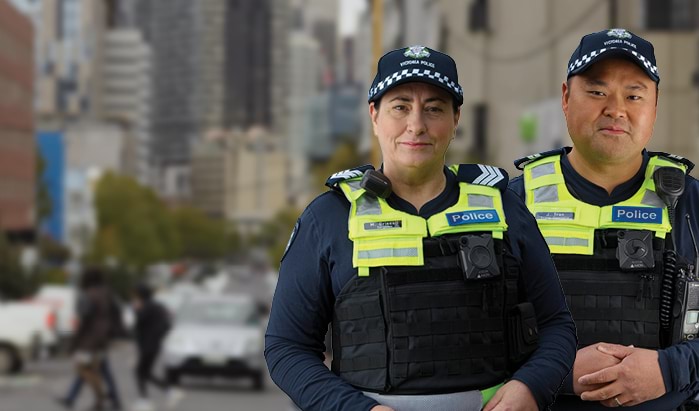About stalking
Stalking is a crime in Victoria and is covered by Section 21a of the Crimes Act 1958.
It is defined by a series of behaviours through which someone imposes themselves into another person’s life in a way which causes distress, fear, and disruption.
Non-Family Violence (NFV) Stalking relates to stalking by a person who is:
- either unknown to the victim or is an acquaintance (friend of a friend, friend of a relative etc.)
- a current or ex-colleague (work-related acquaintance)
- a neighbour
- or any person with which the victim has never had an intimate, personal relationship with.
If you are having issues with a family member, view our Family violence section.
Report stalking
If anyone is in danger, a crime is currently occurring, or you need immediate police attendance, please call Triple Zero (000).
When there is no immediate danger, report:
- directly to a police officer by contacting your local police station, or
- online through ReportCyber where the alleged stalking occurs mainly online
The signs of stalking
Stalking is complex, which can make it difficult to recognise the level of risk.
Non-Family Violence (NFV) Stalking is often made up of a series of behaviours, which, when viewed by themselves, may not be an offence.
Some examples are sending unwanted flowers, or mailing letters that do not include threats.
Non-family violence stalking can include a range of behaviours.
They may include one or all of below:
Learn more about stalking and understanding the justice process on the Victims of Crime website.
What to expect when contacting police
Victoria Police is here to support you.
We record all reports of Non-Family Violence (NFV) Stalking, even if they are not considered criminal.
When talking with police, they can:
- discuss your options
- assess the risks and put safety strategies in place
- provide you with referrals to support services
Improving the way we identify stalking and protect victims
Victoria Police is the first police force in Australia to trial a new tool which will better protect victims of stalking.
Introduced in Prahran and Morwell Police Stations, the Screening Assessment for Stalking and Harassment (SASH) decision-making tool aims to help police:
- prioritise investigations
- manage risks, and
- put in appropriate safety planning for victims.
Local Crime Investigation Units (CIU) will take on high-risk cases, with frontline officers managing cases assessed as moderate or low risk. The CIU will oversee moderate-risk cases.
Participating officers in the trial receive specialist training from a stalking expert to shift their thinking from identifying crime to recognising, understanding, and responding to the behaviours and risks posed to victims of stalking.
Victims are encouraged to report stalking incidents by phoning or visiting their local police station, however currently only police from the trial sites will have access to the SASH tool.
Updated
